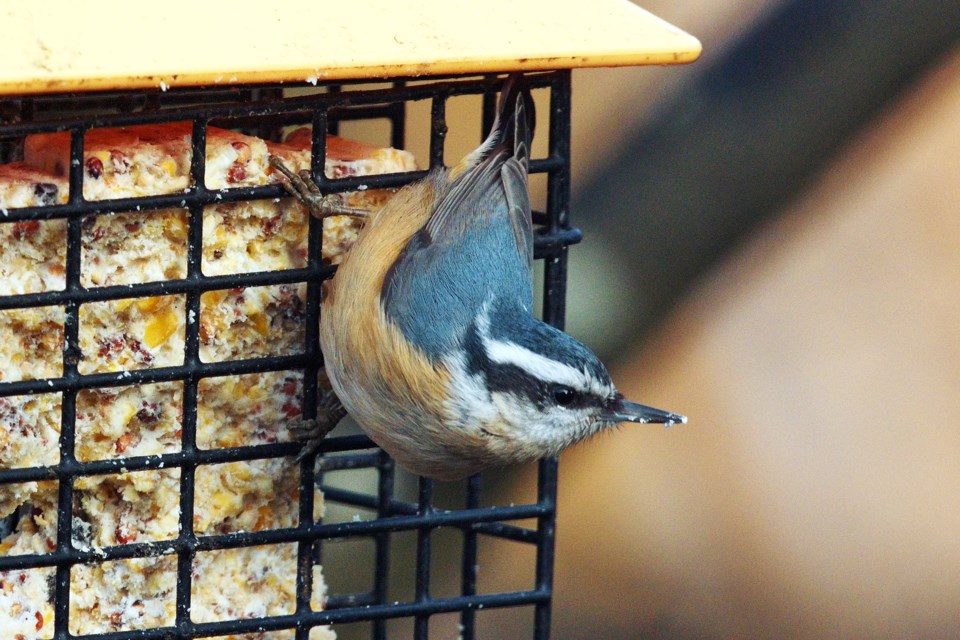Many of us like to give our feathery friends a helping hand by providing bird feeders throughout the year. Siskins, sparrows and finches are just a few of the many birds that may be visiting your feeders regularly, brightening up your backyard with their presence.
But sometimes the feeders can suddenly become strangely quiet.
Birds change their feeder visiting habits throughout the seasons and can sometimes be absent for a while. They will come and go with their nesting and migration behaviours.
With this year’s early spring, some birds have gotten a head start on their nesting rituals. Scouting for nest sites, nest building, and egg laying have already begun for some bird species in the Lower Mainland. When birds are off nesting, they may not visit your feeders as frequently as they normally would. But don’t worry, they will be back and hungry for more.
In summer, you may notice your bird friends stop by less often because their diets change. During this time, they have more foods to choose from as other seeds, fruits and insects come into season. They are also busy providing their babies with protein-rich insects needed for their exceptionally quick growth and development.
Fall and spring migration can result in a change in number and types of birds at your feeder. Many species migrate to spend the cold months in warmer southern regions. Watch your feeder for new species. Some migratory birds may stop for a snack before they continue their journey.
Winter can be a busy time for backyard feeders as fewer natural food resources are available. However, you may see different species hanging out at your feeder at this time of year.
If you are looking to attract a vast array of bird species year-round, sunflower seeds are at the top of the ladder as they are universally loved and enjoyed. With their thin shell, black oil sunflower seeds are easy to crack open for most birds. It is generally good to stay away from mixtures that contain red millet, oats, flax, and other fillers. Birds will simply rummage through these, leaving behind waste that becomes a breeding ground for fungus and bacteria, which can contaminate fresh seed. On top of that, low-quality food can often result in health issues.
No matter the fluctuating number of flying visitors, it is crucial to be mindful about offering food in a safe way. If you decide to offer a feeder it is important for the well-being of the animals to keep it clean.
It is recommended to clean your feeders bi-weekly. Start by discarding any seed remaining in the feeder, then wash it in hot, soapy water. After rinsing the feeder thoroughly, you can disinfect it by using a solution of one part household bleach and nine parts water. Lastly, thoroughly rinse the feeder once more and ensure it is fully dried before refilling with fresh food.
Avian diseases can easily spread among birds sharing feeders because they attract many birds to one place. By keeping your feeders clean, you can help prevent your winged friends from getting sick and passing it on to others. Ultimately, the goal is to do what is best for wildlife.
This article was written by Elin Molenaar, the communications assistant at Wildlife Rescue Association.





